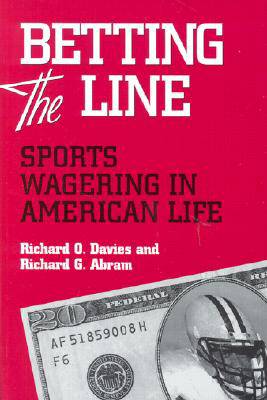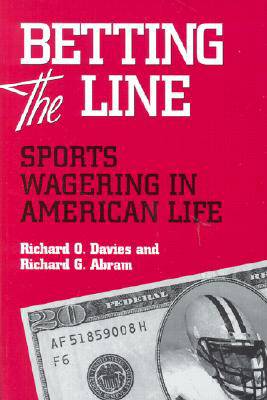
- Retrait gratuit dans votre magasin Club
- 7.000.000 titres dans notre catalogue
- Payer en toute sécurité
- Toujours un magasin près de chez vous
- Retrait gratuit dans votre magasin Club
- 7.000.000 titres dans notre catalogue
- Payer en toute sécurité
- Toujours un magasin près de chez vous
41,45 €
+ 82 points
Description
Betting the Line: Sports Wagering in American Life is a study of gambling, particularly sports gambling, and how it has thrived in American culture. According to Davies and Abram, the culture of betting results from two complementary influences in American society: risk taking and speculation. This is the first effort by academic writers to describe and interpret the history of sports wagering in the United States. Although many books have been written about "how to bet and win," Betting the Line presents a serious history of this popular activity, from the colonial and Civil War eras to today, from early betting on horse racing and baseball to the modern venues of basketball and football. By considering topics as diverse as the business of a bookie, the expansion of legalized gambling, and the increase in popularity of televised sports, the authors offer readers an insightful look into a practice that has become commonplace in American popular culture. In a mere seventy years, the number of states where gambling is legal jumped from one to forty-eight. Yet Nevada remains the only state where sports betting is legal. This book challenges many long-standing myths and stereotypes that revolve around the enterprise, arguing that sports gambling is reflective of the American free enterprise culture. Blending historical facts with interesting tidbits and anecdotes, this lively book both engages and informs. Betting the Line makes a major contribtuion to American social and cultural history as well as to sports history. Richard O. Davies is a professor in the Department of History at the University of Nevada, Reno. Richard G. Abram is an instructor in the Core Curriculum Program at the University of Nevada, Reno.
Spécifications
Parties prenantes
- Auteur(s) :
- Editeur:
Contenu
- Nombre de pages :
- 212
- Langue:
- Anglais
Caractéristiques
- EAN:
- 9780814250785
- Date de parution :
- 15-07-01
- Format:
- Livre broché
- Format numérique:
- Trade paperback (VS)
- Dimensions :
- 154 mm x 229 mm
- Poids :
- 317 g







